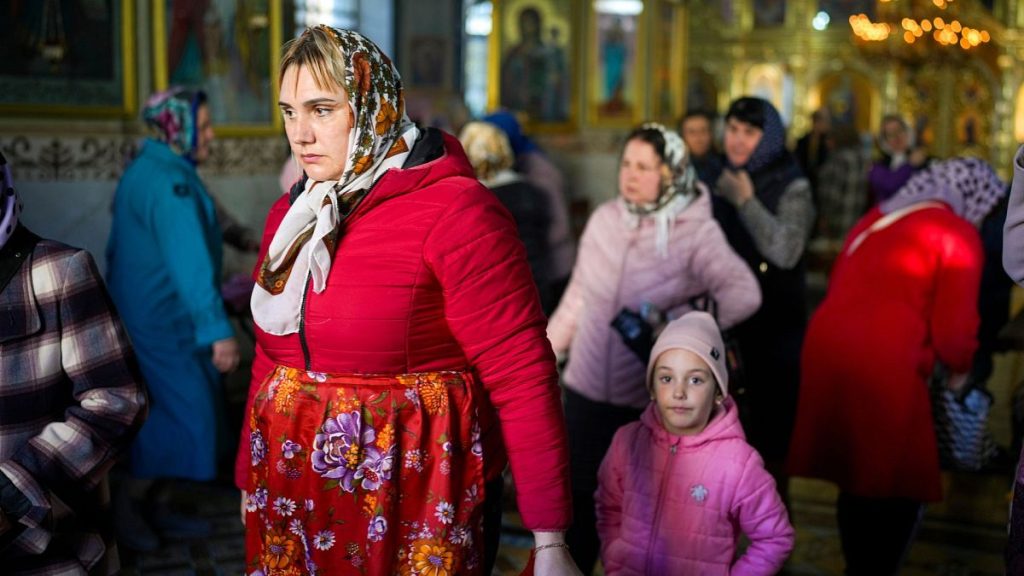Moldova faces a looming energy crisis as Russia’s state-owned gas company, Gazprom, threatens to cut off supplies on January 1st, 2024, over a disputed debt. This looming cutoff has sparked widespread anxiety among Moldovan citizens, who fear a winter without heating or electricity. The potential crisis stems from a disagreement over a $709 million debt that Moldova’s pro-Western government dismisses as a politically motivated fabrication. The situation is further complicated by the fact that Moldova’s largest power plant, Kuciurgan, is located in the breakaway region of Transnistria and relies on Russian gas. A gas cutoff could cripple the power plant, jeopardizing electricity supplies for a significant portion of Moldova, including the capital, Chisinau. The government has declared a state of emergency and accused Russia of using energy as a political weapon to destabilize the country and undermine its aspirations for closer ties with the European Union.
The potential humanitarian implications of the energy crisis are particularly concerning, especially for the residents of Transnistria. While Moldovan President Maia Sandu has assured the nation that the country has sufficient gas reserves for the heating season and is implementing measures to ensure uninterrupted electricity supply, she acknowledges the serious humanitarian risks faced by those in the breakaway region. It is anticipated that Transnistrians will cross the border into Moldova seeking basic necessities like warmth and electricity, potentially straining resources and exacerbating existing tensions between Chisinau and Tiraspol, the de facto capital of Transnistria. The Moldovan government is urging national unity, solidarity, and rational energy use as it navigates this challenging period.
Moldova has been proactively implementing energy-saving measures to mitigate the impact of the potential crisis. These measures include reducing lighting in public and commercial buildings and shifting energy-intensive operations to off-peak hours. Individuals are also bracing for the potential hardships. The uncertainty surrounding the energy supply is causing widespread anxiety, with many expressing concerns about the ability to heat their homes and maintain essential services. The situation underscores the vulnerability of Moldova, a small nation caught between geopolitical power plays, and highlights the human cost of energy insecurity.
Experts warn that the energy crisis could further escalate tensions between Chisinau and Tiraspol, potentially creating a flashpoint for renewed conflict. The Kremlin’s alleged use of “hybrid warfare” tactics, including funding protests and disseminating disinformation, adds another layer of complexity to the situation. There are concerns that Russia may exploit the energy crisis to exert further political and social pressure on Moldova ahead of the 2025 parliamentary elections. This potential manipulation raises questions about the country’s stability and its ability to maintain its pro-European trajectory in the face of Russian influence.
Moldova has been actively diversifying its energy sources since Russia’s invasion of Ukraine, aiming to reduce its dependence on Gazprom. This strategic shift demonstrates the country’s commitment to energy security and its desire to lessen its reliance on a politically volatile supplier. However, the current gas dispute highlights the ongoing challenges Moldova faces in balancing its domestic needs with its geopolitical aspirations. The country is walking a tightrope, striving to secure its energy future while navigating the complex political landscape and resisting external pressures.
The looming energy crisis has created a palpable sense of unease and uncertainty in Moldova. Citizens are bracing themselves for potential hardships, while the government grapples with the daunting task of securing the nation’s energy supply and maintaining stability in the face of external pressures. The situation underscores the vulnerability of small nations caught in the crosshairs of geopolitical power struggles and highlights the human cost of energy insecurity. The coming months will be crucial for Moldova as it navigates this complex and potentially destabilizing crisis. The government’s ability to manage the situation effectively, maintain unity, and secure alternative energy sources will be critical for the country’s future and its aspirations for closer ties with Europe.










